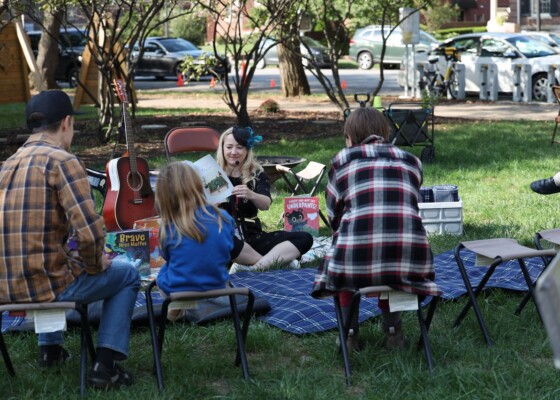Are you ready for the Fall Harvest?
September 7, 2010How did your garden fare this year? I was a pretty lazy gardener, choosing air conditioning over dutiful weeding and watering. Then, the dry spell came while I was away…
How did your garden fare this year? I was a pretty lazy gardener, choosing air conditioning over dutiful weeding and watering. Then, the dry spell came while I was away on vacation. Yet, somehow, my garden managed to produce a decent amount of popcorn, a few meals’ worth of fingerling potatoes, one lonely pumpkin, and so many tomatoes that my backyard chickens are eating them daily to help me keep up until I get my act together and dig out my canning equipment.
Last year, the harvest was much larger, and I experienced a moment that’s probably familiar to others of my generation: A long time ago, my mother taught me to make and store jam and tomato sauce, but that skill had faded from memory. So, I generally composted or threw away the stragglers and bought new fruit from who-knows-where at the store. I’m a little ashamed of my past interactions with food and the environment, but things are improving.
In the 19th century, this time of year was a time of planning and labor. As the backyard garden or farm yielded more than could easily be eaten, bartered, or sold in a few weeks, families “put up” food for the winter. Foods could be dried, pickled, or canned, and for all but the wealthy, these preserved foods would represent nearly all of the vegetable and fruit servings in the diet until the next year’s earliest crops bore fruit.
When growing your own vegetables or supporting local farmers, it just makes sense to take a lesson from the past. Take advantage of a great harvest and have access to fresh, local, natural foods year-round by preserving them for winter and spring use. Just in time for Fall, Morris-Butler House is hosting a hands-on workshop on the topic of Canning. This next installment of Naturally, Victorian events will take place on Sept. 18 at 10 a.m. Each participant will take home a copy of the Ball Blue Book, a guide to safe home canning methods, courtesy of Jarden Home Brands. Space is still available and the cost is $10 for the general public. To make a reservation, call 317-636-5409.
Naturally, Victorian is an exhibit and series of events focusing on what the 19th century can teach us about living sustainably. Naturally, Victorian has been made possible through a matching grant from the Indiana Humanities Council in cooperation with the National Endowment for the Humanities.
This post was written by Aimee Rose Forno, program coordinator for Indiana Landmark’s Morris-Butler House.


